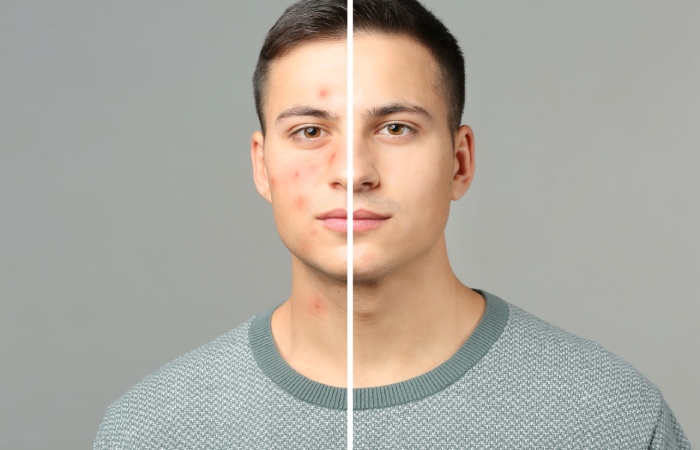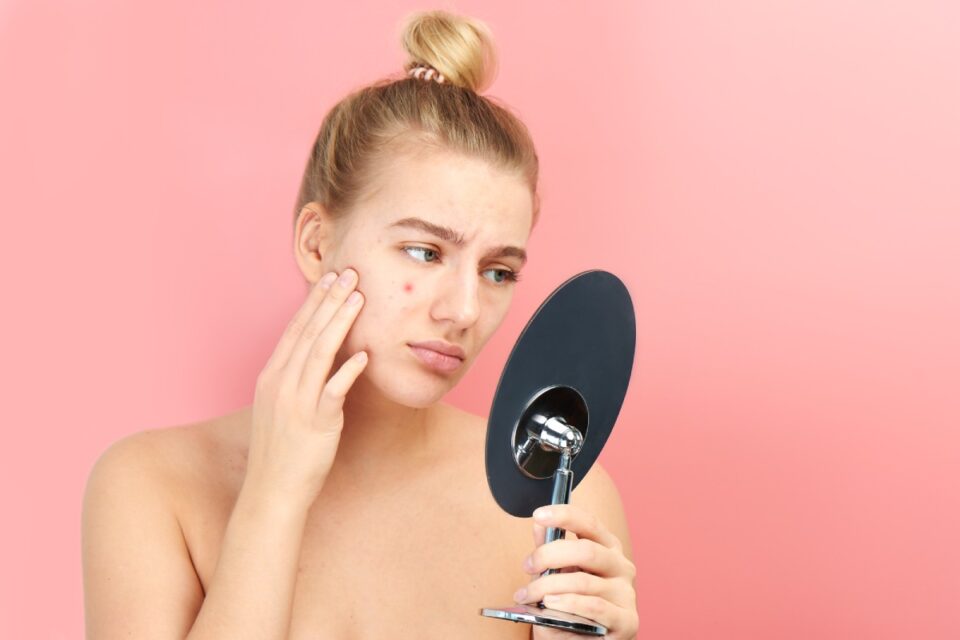No one is a stranger to acne, especially since it can occur to anyone, regardless of age and gender. Relatively, acne isn’t a serious health concern. However, it may have a huge impact on your psychological well-being. For instance, if you have acne or breakouts, you may have less self-confidence since you may be embarrassed to face anyone. This will affect your social life and even your productivity at work.
Fortunately, advancements in dermatology can provide you with insights into how to deal with acne. From knowing the different skin types and the right products, one can now easily manage acne problems, even in the comfort of their homes.
That being said, whether you want to apply some natural home remedy for acne or are looking to change your routine, here are some tips when dealing with acne that you should consider from the get-go:
Table of Contents
1. Wash Your Face Properly

The most recommended tip when dealing with acne is to properly cleanse and treat your face twice a day (every morning and before your bedtime). Washing your face properly will remove excess oil and dirt from your skin, helping you prevent breakouts.
Here are two face washing tips you can follow:
- Use the right cleanser
You shouldn’t pick a cleanser blindly. Doing so may be ineffective. Instead, when choosing the right cleanser, always consider your skin type first, and then pick a cleanser that has the appropriate ingredients.
For example, if you have oily skin, look for a cleanser that has glycolic acid, benzoyl peroxide, and salicylic acid. Meanwhile, if your skin is sensitive, it’s best to opt for a gentle cleanser that has lactic acid or any hydrating ingredients. A gentle and hydrating cleanser isn’t drying compared to those made specifically for oily skin.
- Don’t over-exfoliate
You may be tempted to exfoliate your skin thinking that it’ll remove any impurities. However, doing so can do more harm than good. This is because over-exfoliation may cause inflammation, irritation, and redness. Instead, try to allocate two or three days a week for exfoliation.
However, the recommended times to wash one’s face may not be achievable for some people, especially if you just had a tiring day at work or school. If this is the case for you, as an alternative, try to store some hypoallergenic face wipes on your nightstand. Then, properly wipe your face with it before you fall asleep.
2. Use Apple Cider Vinegar
Made by fermenting the unfiltered juice of apples, apple cider vinegar is said to have plenty of uses and benefits, like weight loss and lowering blood sugar. Also, apple cider vinegar is gaining popularity as a natural alternative to deal with various digestive and skin issues, including acne.
Apple cider vinegar may be effective in dealing with acne because it contains the organic acids (acetic, lactic, citric, and succinic acid) capable of fighting the bacteria Propionibacterium acnes, which is the major contributor to acne.
Here’s how you can use apple cider vinegar as part of your facial care routine:
- Mix apple cider vinegar and water in a 1:3 ratio. Take note that apple cider vinegar may cause burns and irritation. Hence, add more water if your skin is sensitive.
- After washing your face, use a cotton ball to apply the mixture to your skin.
- Leave it for five to twenty seconds before rinsing it off with water.
3. Change Your Diet
Did you know that your skin can be a manifestation of what’s going on inside your body? This means that if you eat the right type of food and follow a healthy diet, you may also be combatting the appearance of acne. Thus, in addition to buying the right type of products for your skin, also consider your diet.
A high glycemic diet is said to be one of the causes of acne. Thus, try cutting on food that raises your blood sugar. This means that, as much as possible, you must avoid soda, sweets, processed foods, candy, and breakfast cereals that have high sugar content. As an alternative, you can snack on vegetables, fruits, whole grains, or nuts.
4. Drink Plenty Of Water
In addition to eating the right type of foods, it’s also important to consider your hydration. This is because if you’re dehydrated, your skin may tend to excrete more oil, which triggers acne. Additionally, being dehydrated may invite redness and inflammation.
To avoid dehydration, always drink more than eight glasses (eight-ounce) of water every day. To spruce up your water intake, you can also drink tea. Green tea, dandelion tea, and spearmint tea have the necessary antioxidants to combat acne.
Final Words
Even though acne in itself isn’t a serious health concern, take note that acne can be a symptom of a more serious problem. Hence, if despite following the tips above your acne still persists, it’s best to consult a dermatologist. Also, a dermatologist can properly diagnose your acne problems so they can create a treatment regimen suited to your needs. That’s why, when in doubt, always resort to professionals.

